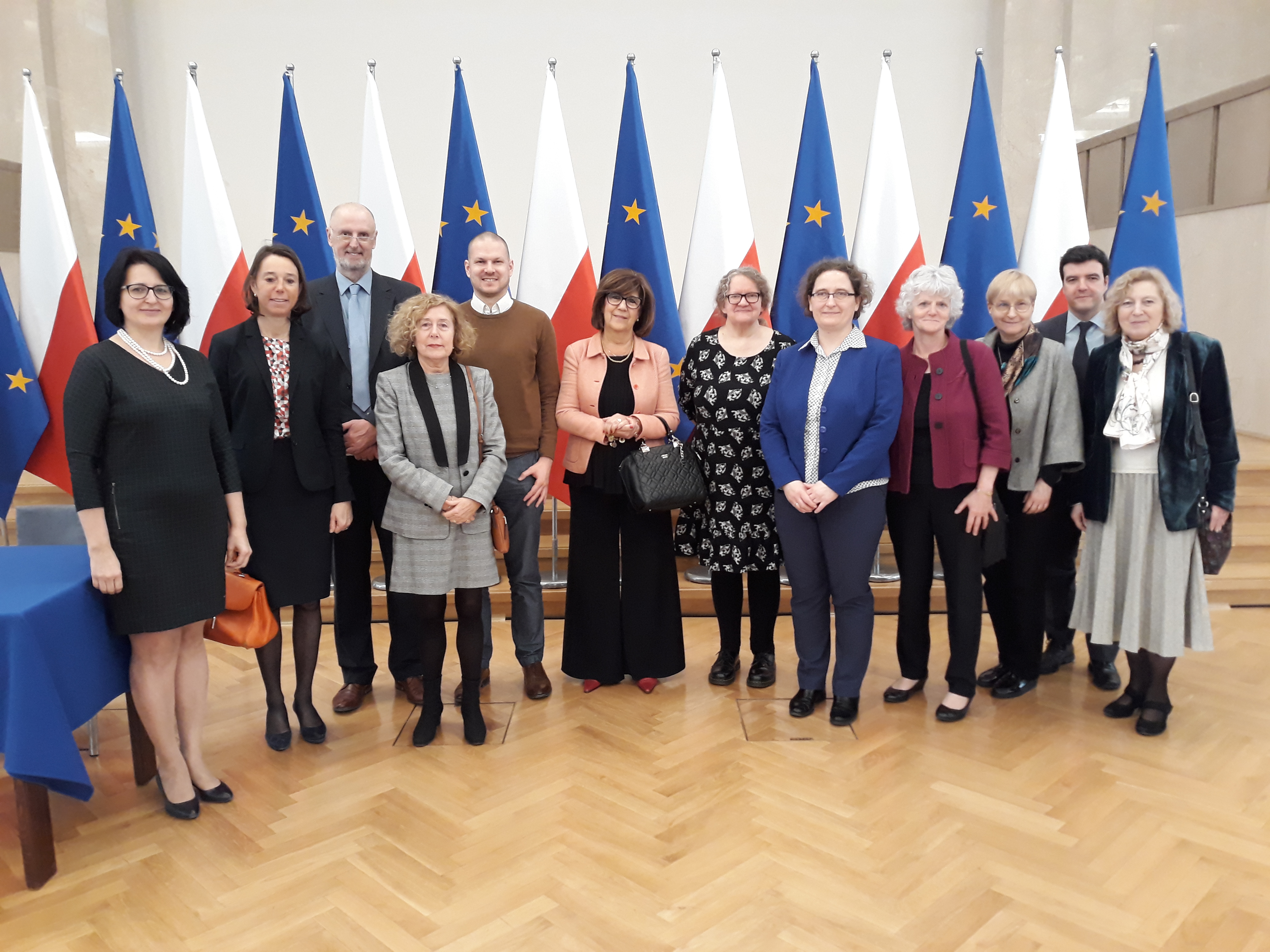A meeting has taken place to summarise the results of the ‘Supporting the improvement of the quality of inclusive education in Poland’ project. The project was implemented by the Polish Ministry of Education and Science (MEiN) in co-operation with the Agency and the European Commission’s Directorate-General for Structural Reform Support (DG REFORM) under the Structural Reform Support Programme (SRSP).
Secretary of State Marzena Machałek opened the meeting on 20 July. She is the government plenipotentiary for schools and institutions, inclusive education and vocational education and training. Ms Machałek summarised the project and highlighted three main aspects to improve the quality of education for all learners in Poland, which will be the focus of future work in Poland:
- increasing awareness that the education system should be able to meet the needs of learners with diverse needs;
- preparing teachers and others involved in the education process to provide inclusive activities, and promoting good practices;
- increasing dialogue between all stakeholders.
Elisa Gomez-Aleman of DG REFORM stressed the positive co-operation throughout the project between MEiN, DG REFORM and the Agency. She also highlighted the importance of working with stakeholders across system levels, which has been so successful throughout this project.
Agency representatives Amanda Watkins and Verity Donnelly provided a summary of the key activities and outcomes of the Agency’s work on the project. They outlined the 16 recommendations and four priority actions that were presented at the end of the first phase of work, and the eight assumptions developed during phase 2. These assumptions will be used to inform the proposed new legislation on inclusive education in Poland.
The MEiN representatives gave an overview of the activities that have been implemented in Poland so far as a result of the project. These include teacher training activities and piloting the use of special education institutions as specialist resource centres for mainstream schools. They also outlined future planned activities, such as implementing new IT tools and digital ‘easy-to-read’ educational materials.
A clear policy vision for high quality inclusive education now exists in Poland, which is being championed by key decision-makers. This policy vision and leadership are critical to the future of inclusive education. The Action has helped mobilise a real momentum towards greater inclusion in Poland.

